Thirteen years after tribal communities in the Bristol Bay region of Alaska first petitioned the federal government to use its authority under the Clean Water Act to protect the watershed from the threats posed by the proposed Pebble Mine, those communities finally have something to celebrate. Today, the Environmental Protection Agency (EPA) finalized 404(c) Clean Water Act protections that will stop the proposed Pebble Mine from being built at the headwaters of Bristol Bay.
The EPA’s publishing of its Final Determination marks the culmination of a multi-decade long battle to protect the world’s most prolific sockeye salmon fishery from the ravages of the mining industry. The finalization of protections — which permanently prevent the use of both Koktuli Creek and Upper Talarik Creek at the headwaters of the Bristol Bay watershed — in the disposal of dredged or fill material resulting from mining of the nearby Pebble Deposit. The determination not only serves to prevent development of the proposed Pebble Mine, but blocks any future plans to develop the Pebble Deposit that would result in impacts similar to or greater than the plan denied by the U.S. Army Corps of Engineers in 2020.
Along with the recent reinstatement of the Roadless Rule in southeast Alaska’s Tongass National Forest, the finalization of these protections for Bristol Bay serve as rare bright spots for the Biden administration, which has largely failed to put forth the bold, progressive environmental agenda it promised voters in 2020. Instead, the Biden administration has neglected to meaningfully address the mounting climate crisis, outpaced the Trump administration in approval of oil and gas drilling permits on public lands, and recently held the largest offshore oil drilling lease sale in history.
"Under President Biden, the EPA has not only restored its commitment to science and law but truly listened to the original stewards and first peoples’ of this land. Ignored by our own state government, our Tribes petitioned the EPA 13 years ago to use its 404(c) authority to protect Bristol Bay, to protect our people,” said Alannah Hurley, executive director of the United Tribes of Bristol Bay. “Today, these Clean Water Act protections provide certainty that Pebble cannot be built in Bristol Bay. On behalf of UTBB, I’d like to say quyana, chin'an, thank you to the EPA and the Biden Administration not just for this decision, but for working throughout this 404(c) process to consult with our Tribes. EPA’s action today helps us build the future where our people can remain Yup'ik, Dena’ina, and Alutiiq for generations to come."
The process to protect the Bristol Bay region of Alaska under the authority of the Clean Water Act began under the Obama administration, during which—after years of scientific study and several rounds of public comments—the EPA published a Proposed Determination to prevent mining in the region. But the process was never completed and in 2019 the incoming Trump administration sought to withdraw the proposed protections, once again opening the door to the development of the Pebble Deposit. That attempt was ultimately blocked by the courts, allowing the Biden administration to resume and ultimately complete the process.
“This is an incredible day for the Bristol Bay region.” said Nelli Williams, Alaska director for Trout Unlimited. “For more than a decade, the science has remained strong and public support has been unwavering for Clean Water Act protections. An Alaska-sized thank you to the Biden Administration and the EPA for listening to Alaskans, Tribes, anglers and hunters, and for doing the right thing for a world-class renewable resource and the people and jobs that depend on it. The work in Bristol Bay isn‘t done, but today is a milestone to be celebrated.”
“Today’s decision may be the most popular thing the federal government has ever done for Alaska,” said SalmonState Executive Director Tim Bristol. “Thousands of Alaskans and over a million Americans from across the political spectrum have called for protection of Bristol Bay’s one-of-kind salmon resource from massive open pit mining and today, the EPA delivered. This is a victory for every single person — from Bristol Bay’s tribal citizens, commercial fisherman, sport anglers, business leaders, chefs, scientists, and so many more — who have spoken out over the years, and we thank the EPA and the Biden Administration for this well-considered, heavily documented, overwhelmingly popular move.”
“These restrictions and prohibitions by EPA, coupled with the recently completed Pedro Bay conservation initiative, provides a strong sense of relief — but we will not rest until the threat of large-scale, open pit, acid waste generating mining is completely eliminated from the headwaters of Bristol Bay,” Bristol continued. “This will take vision and leadership from our decision-makers, and we look forward to working with them to reach this goal.”
The finalization of protections preventing the development of the Pebble Mine come on the heels of Bristol Bay breaking records for the return of sockeye salmon for the third year in a row—with over 79 million sockeye returning to its waters in 2022.




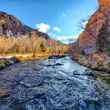
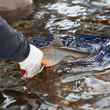
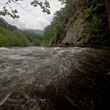
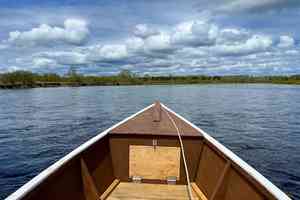




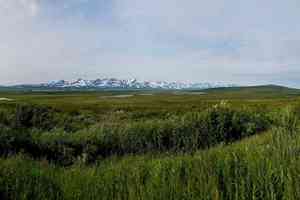

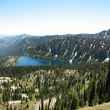
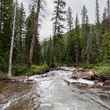











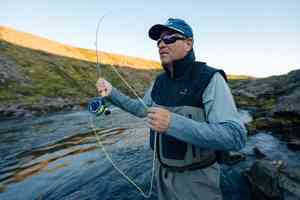



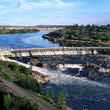
Comments
Thomas Doyle replied on Permalink
I am very pleased to read that Bristol Bay is safe.
Now let’s get real. Pebble has spent a fortune on lobbying and prospecting Bristol Bay.
Unless the EPA decree is etched in stone they will be back and this time with a P vengeance. How will Bristol Bay be protected from the no regulations people if they win the White House in 2024.
Pebble is mining in the Michigan UP. The mine abuts to a major river with what looks like a berm separating the mine from the river. Pebble has said they plan to expand the mine as needed. The future is bleak for the Michigan UP start figuring out how to prevent the future.
Maybe if the Bristol Bay Area was declared a national park so that it can the protections of a national park.
The fishing industry and aboriginal peoples can still have access and it might keep Pebble at bay.
Gregg Burch replied on Permalink
Love the good news. Don’t understand why the cheap shot at Biden, doing nothing meaningful about the climate crisis. Here’s an update on what he’s done: https://www.wri.org/insights/biden-administration-tracking-climate-actio...
Pages